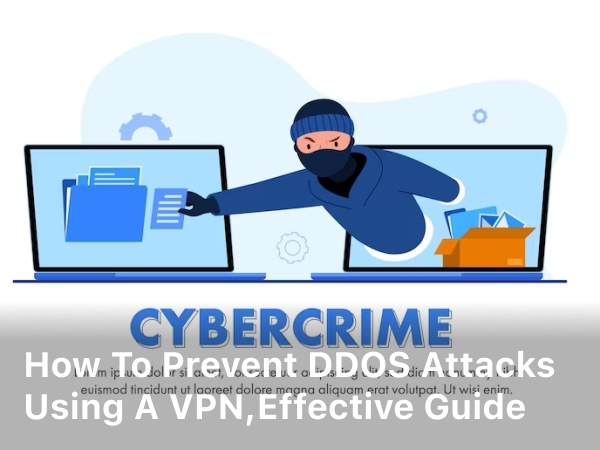Have you ever connected to the Wi-Fi at your favorite coffee shop or logged on to the network at a hotel and wondered who else might be peeking at what you’re doing online? If you value your privacy and security, it’s time to get a VPN for your home network. A virtual private network creates an encrypted tunnel for your internet traffic and hides your online activities from prying eyes. Here are seven reasons why setting up a VPN at home is essential.
Protect Your Privacy and Browsing Data With a VPN
A VPN is essential for protecting your privacy and hiding your online activity from prying eyes.
- Your internet service provider can see every website you visit and everything you do online. A VPN encrypts your connection and hides your browsing data so your ISP can’t see what you’re up to.
- Public Wi-Fi networks are not secure. When you use public Wi-Fi at a coffee shop or airport, hackers can see what you’re doing and steal your personal information. A VPN secures your connection on public networks and helps prevent cybercriminals from accessing your data.
- Streaming services and websites often restrict content based on your location. A VPN allows you to mask your real location and access geo-restricted content from anywhere. You can view your favorite shows even when traveling abroad!
- Governments conduct mass surveillance on citizens’ online activity. A VPN makes it much harder for governments to monitor what you do on the internet and protects your right to privacy.
- VPNs are affordable and easy to use. For a few dollars a month, you can connect up to 5-10 devices simultaneously. Most VPN services have simple apps to quickly connect your phone, laptop, streaming device and more.
Protecting your digital life is more important now than ever. Investing in a VPN is one of the smartest ways to keep your online activity private, access content freely and add an extra layer of security for all your connected devices. Your future self will thank you!
Access Geo-Restricted Content From Anywhere
A VPN allows you to access your favorite streaming media no matter where you are. Say you want to keep up with the latest season of your must-watch show, but you’re traveling abroad. Just fire up your VPN, select a server back home, and stream to your heart’s content. Geo-restrictions foiled!
The same goes for live sports, music streaming services, and any other content not available in your current location. As long as the content is accessible on the network back home, your VPN can make it appear as if that’s exactly where you are.
For expats or frequent travelers, a VPN is essential for accessing services from back home that you pay for and subscribe to. There’s no need to miss out just because of where you are. With a VPN, you can binge-watch your favorite shows, stream radio stations from your hometown, follow your sports teams, or just access familiar websites.

A VPN also allows you to access content that may be controversial or politically sensitive in some areas. By masking your real location, you have uncensored access to information that may otherwise be blocked or restricted. Knowledge is power, so a VPN gives you the power to explore the full depth and breadth of the internet without limitations.
For accessing all the content you love and staying connected no matter where you roam, a VPN is the must-have tool for the modern home network. With so much to gain, why restrict yourself when you have the power to unlock it all? Get a VPN and never miss out again!
Improve Your Online Security and Encryption
A VPN, or virtual private network, allows you to create an encrypted connection over a less secure network, like the internet. Using a VPN improves your online security and privacy in several key ways:
Encrypt Your Internet Connection
A VPN encrypts all the data traveling between your devices and the VPN server, hiding your online activity from prying eyes. Without a VPN, your internet service provider, network admin, and websites you visit can see information like the websites you access, messages you send, and even passwords you enter.
Related Article : How to Increase Your Internet Speed in Valorant?
Hide Your Real IP Address
Your IP address reveals your physical location and internet service provider. A VPN masks your real IP address, making it appear as if your connection is coming from the VPN server location. This hides your real location and identity, protecting you from targeted internet-based attacks.
Bypass Internet Censorship
Some countries block access to websites and services like social media, streaming media, and secure messaging apps. A VPN allows you to circumvent these restrictions by tunneling your connection through an uncensored network. You can access the entire internet without limitation.
Safer Public Wi-Fi Use
Public Wi-Fi networks are notoriously insecure. They allow anyone within range to see what websites you visit and capture your account passwords or other sensitive data. A VPN protects you on public Wi-Fi by encrypting everything you do online. Your activity and information will remain private even when using the least secure networks.
Using a VPN is one of the best ways to improve your online privacy and security. For a few dollars a month, you can connect all your household devices to a VPN service and browse the web with confidence, wherever you are.
Mask Your Real IP Address
A VPN, or virtual private network, masks your real IP address and hides your online activity from prying eyes. Here are a few reasons why a VPN is essential for security and privacy in your home network.
Mask Your Real IP Address
Your IP address is like your home address for the internet. It reveals your general location and the internet service provider you use. A VPN assigns you an alternate IP address, masking your real one. This makes it appear as if you’re accessing the internet from another location.
Hide Your Online Activity
Without a VPN, your internet service provider can see every website you visit and everything you do online. A VPN encrypts all the data you send and receive, hiding your online activity from your ISP and anyone else trying to snoop.
Access Geo-Blocked Content
Some streaming media services and websites block access based on your location. A VPN lets you spoof your location, so you can access content that may normally be blocked in your area. If you want to watch your favorite shows on a streaming service that isn’t available in your country, a VPN can help you access it.
Public Wi-Fi Security
Public Wi-Fi networks are breeding grounds for hackers trying to steal passwords, credit card numbers, and personal information. A VPN secures your connection and encrypts all the data you send and receive on public Wi-Fi networks. This helps prevent criminals from stealing your sensitive data or hacking into your accounts and devices.
Anonymity and Privacy
A VPN provides an added layer of anonymity and privacy for your online activities. By hiding your real IP address and encrypting all your internet traffic, a VPN makes it much more difficult for websites, internet service providers, and potential hackers to track your behavior, see what websites you visit, and steal your personal information.
Using a VPN for your home network helps ensure your privacy, security and anonymity online. In an age of increasing digital threats, a VPN provides essential protection for you and your family’s connected devices.
Enjoy Faster Download Speeds and Less Buffering
A VPN allows you to connect to the internet through a private server, encrypting all your network traffic and hiding your online activities. One of the major benefits of using a VPN at home is faster download speeds and less buffering.
Bypass Bandwidth Throttling
Your internet service provider may throttle your bandwidth at peak times or when streaming video to manage traffic. A VPN masks what you’re doing online, so your ISP won’t know you’re streaming video or downloading large files. They won’t be able to slow down your connection.
Access More Content
Some websites and streaming services restrict access to certain content based on your location. A VPN lets you spoof your location, so you can view content that isn’t available in your country. If your favorite show isn’t on your local version of Netflix, just connect to a U.S. server to stream it.
Avoid Buffering and Lag
Buffer-free streaming and fast downloads are possible with a VPN. By hiding your online activities from your ISP, a VPN prevents them from throttling your bandwidth when you’re using high-bandwidth applications like streaming 4K video, gaming online, or downloading software updates.
Secure Public Wi-Fi
Public Wi-Fi networks are notoriously insecure. A VPN secures your connection and encrypts all the data you send and receive on public Wi-Fi hotspots. Hackers won’t be able to see what websites you access or steal your personal information. You can use public hotspots worry-free.
Using a VPN at home provides significant benefits for your connectivity and security. Faster speeds, less throttling, access to more content, and safer public Wi-Fi are just a few of the ways a VPN can improve your home network experience. For seamless streaming, downloading, and web browsing at home, a VPN is essential.
Conclusion
So there you have it – seven compelling reasons why you need to install a VPN on your home network. A VPN is one of the best ways to protect your privacy, security, and access to entertainment while using the internet. For a small investment, you get peace of mind that your online activities and personal information are shielded from prying eyes. And with so many great VPN services offering apps that make it easy to connect, there’s really no excuse not to get started today. Take control of your digital life and install a VPN – your future self will thank you.





